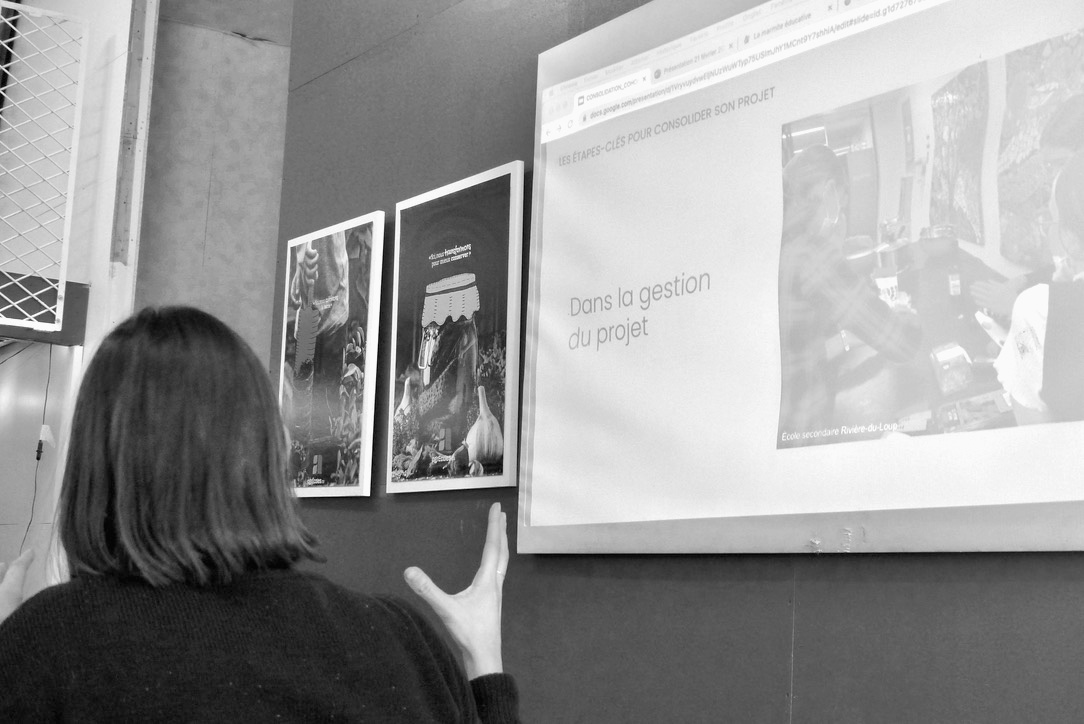In 2022, five primary and high schools in Quebec received the Farm to School Canada grant to implement sustainable food programs. The initiatives developed have led to the creation of salad bars, culinary workshops involving the students, greenhouses and school gardens and many other activities, all inspired by the Farm to School approach!
Équiterre, a founding partner of Farm to Cafeteria Canada (F2CC), is the regional leader for F2CC in the province of Quebec. In addition to the support grant recipient schools receive from F2CC, the Équiterre team helps the schools during the two years of the Farm to School Canada Grant implementation. They host three training sessions at each stage of the schools’ initiatives and follow up with check in calls.
The first training session is designed to connect the teams and guide them to handle the first steps to get their food programs off to a good start (including setting goals, identifying needs, building a solid team and partnering with local suppliers). The objective of the second training session is to help strengthen the programs by enabling the schools to share expertise and experiences, and deepen their partnership with local suppliers (and/or the food service provider at their school, if applicable).
In 2023, the second training session was aligned with F2CC’s theme for the 2022/23 school year : “Food Connects!” and this post shares what unfolded.
A day of inspiration and knowledge sharing
The meeting was held on February 21, near Trois-Rivières, on the unceded lands of the Attikamek and Innu nations. It began at Louis-de-France Elementary School, a primary school that received the Farm to School Canada grant in 2018 and was supported by the Équiterre team in setting up a salad bar.


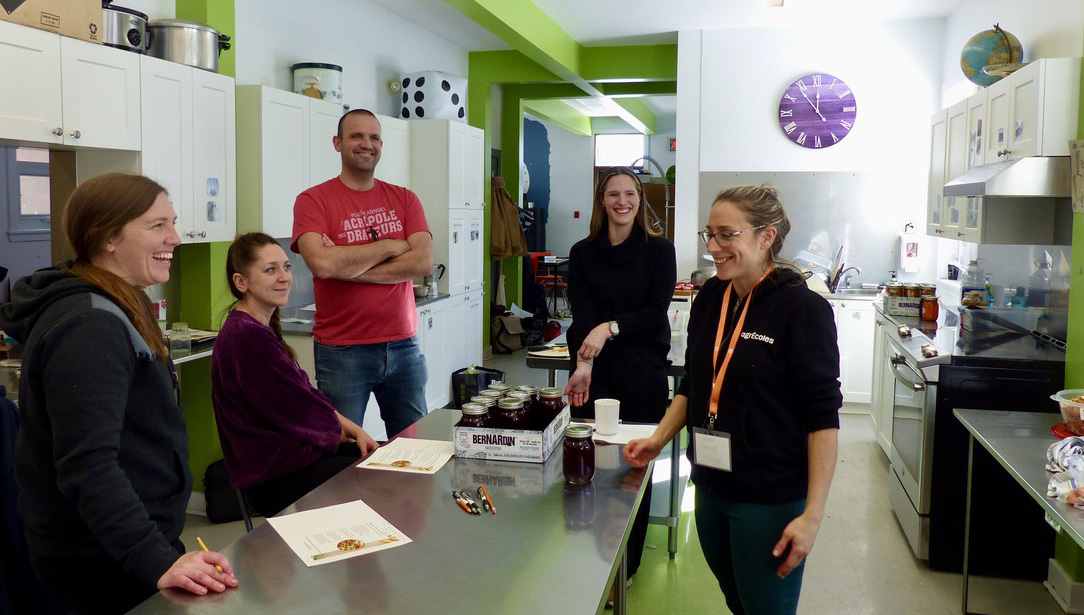
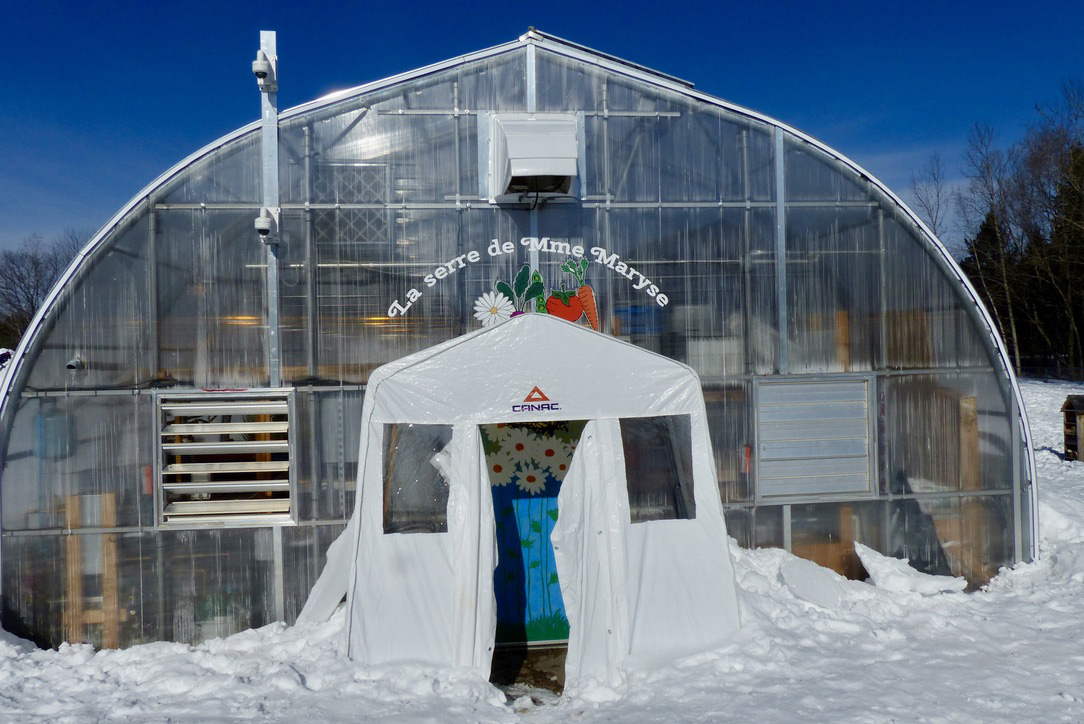
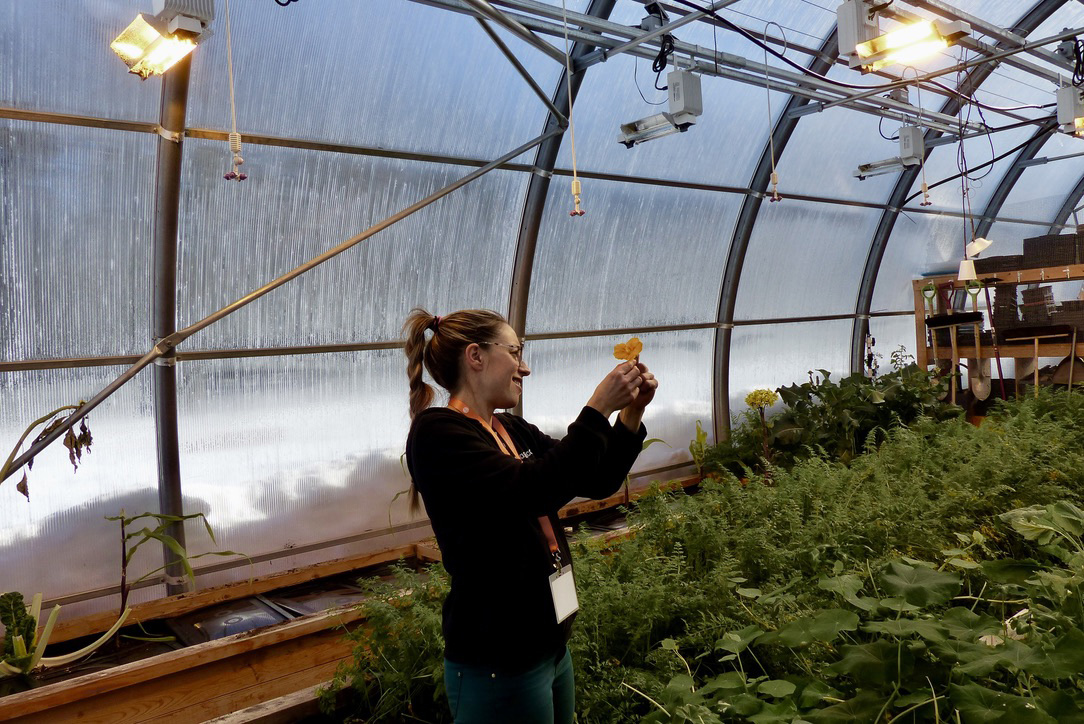
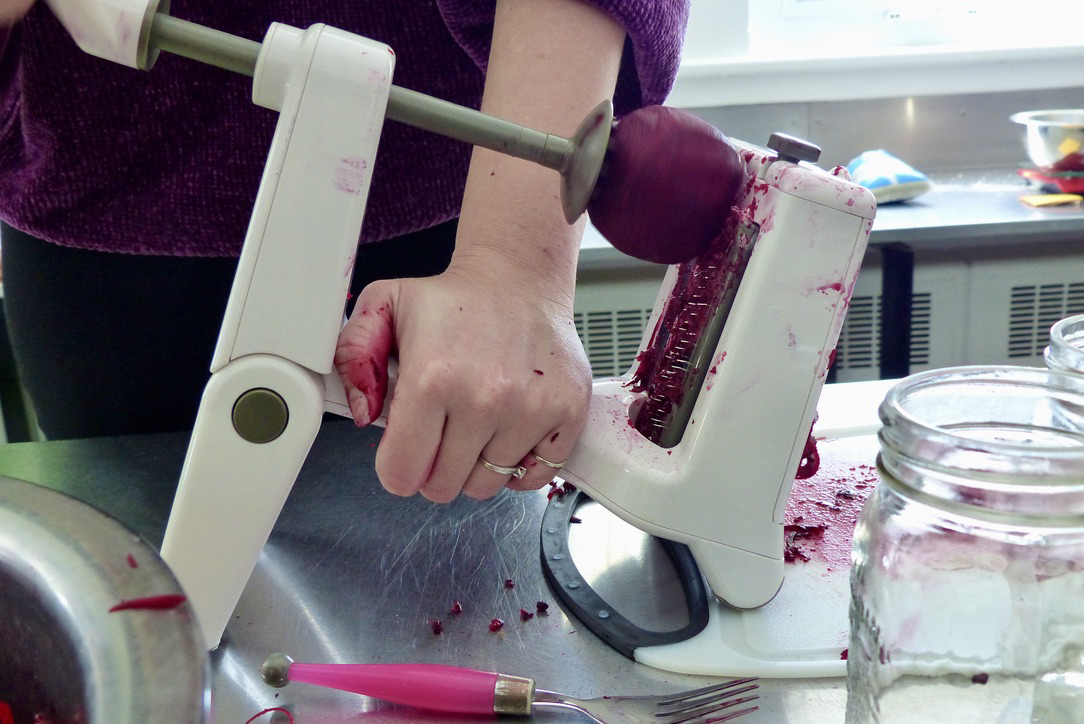
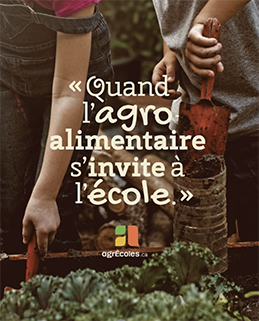 AgrÉcoles’s purpose
AgrÉcoles’s purpose